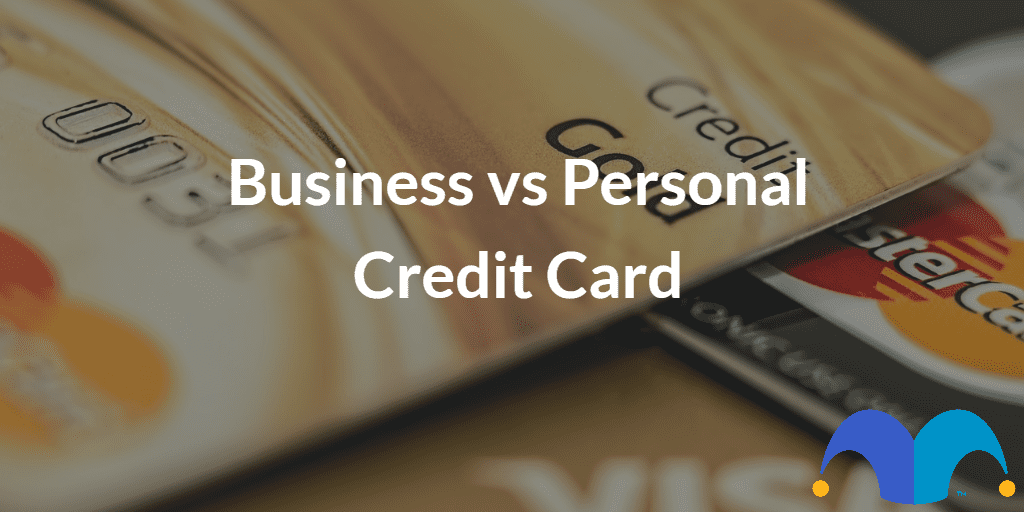Knowing how business and personal credit cards differ can save you effort, time, and possibly a few pounds in fees if you play your, ahem, cards right.
While they’re inherently the same, business and personal credit cards have unique characteristics that make it worth your while to know the difference. Believe us, your accountant will thank you for it!
6 differences between business and personal credit cards
No, it’s not just the embossed name on the front of the card that’s different. From the legal mumbo jumbo right through to those travel miles, there are nuanced differences that make it important to know what you’re getting yourself, or your business, into.
1. Credit limit
Two income streams determine your business credit limit: personal income and business revenue. This allows you to up the limit as business cards need to have that extra little bit of buying power.
For your business, a decent credit card limit could result in supplier discounts, good stock levels, and a faster turnaround time in terms of maintenance or repairs when parts are needed for existing equipment.
Although it’s possible that a business credit card might be personally guaranteed, meaning the card’s balance has to be repaid, even if the business faces bankruptcy. Be sure to read the fine print so you understand which you’re signing up for.
2. Eligibility
It’s relatively simple to obtain a personal credit card. You just need to be over the age of 18 and provide proof of income. A good credit history helps but isn’t necessary, as there are also credit cards for bad credit.
To get a business credit card, there are a few more hoops to jump through. You need to provide figures in terms of revenue and business standing, usually in the form of an income statement and balance sheet.
Many lenders also expect your business to be in operation for a minimum amount of time – for instance, 12 months – before you apply for a business credit card. Your business may also need to be registered and have a Unique Tax Reference number.
3. Reporting policies and consumer rights
With a personal credit card, your conduct is reported to the major credit bureaus which include TransUnion, Experian, Equifax, and Crediva.
When you have a business credit card, however, your conduct is not always reported to the major credit bureaus. However, your activity will be reported to commercial credit bureaus. Sometimes, a card issuer will also report you in your personal capacity on a business credit card default.
It’s also important to know that not all consumer rights are available to businesses, especially the Consumer Protection Act. Sole traders and partnerships might have some protection under this act.
4. Special Perks
While there may be a wider variety of rewards available with personal credit cards, it’s easier to stack up rewards on a business credit card purely because of the increased spending. When choosing a business credit card, however, check to see that the rewards aren’t capped.
5. Accounting
If you own a business and you need your workers to have credit cards for petty cash, stock purchases, fuel or whatever other needs arise, proper accounting is important. With business credit cards, each staff member has their own sub-account, which allows you to track the usage on each card.
Furthermore, you can set individual limits on each credit card to manage workers’ spending. At the end of the statement cycle, all the individual statements are available, plus the master statement, which makes accounting that much easier.
6. A difference in fees
Many personal credit cards are doing away with annual fees in order to remain competitive.
The same is not always true for business credit cards. No annual fees on a business card are the exception, not the norm. There are also very few business cards that offer deals such as a 0% period on balance transfers and purchases. If they do, then it’s likely to be one and not the other.
Can you use a personal credit card for business expenses?
You can use a personal credit card for business purposes if you want to create animosity between you and your accountant!
In all seriousness, using a personal credit card for business expenses can be a confusing accounting exercise, especially if your personal expenses are interspersed between your stock purchases and business odds and ends.
Should you get a business credit card or a personal credit card?
In simple terms, personal credit cards work well for personal expenses and business credit cards are best for business expenses.
Get a personal credit card if:
- You’re a sole trader and plan to keep your business and personal expenses separate
- Your business doesn’t qualify yet for a business credit card
- The rewards and perks offered trump the benefits of a business credit card
- You don’t want to pay the fees that are standard with most business credit cards
Get a business credit card if:
- Your business expenses are becoming muddied with your personal expenses, making accounting difficult
- You need a fairly high credit limit to accommodate your transactions
- You require additional cards for staff at no added cost
- The benefits of a business credit card outweigh the cost-savings of a personal credit card
If you’re in the market for a credit card, have a look at our list of our featured business credit cards in the UK to find the right one for you.
